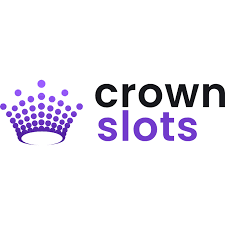Bill Shorten’s Views on Online Gambling and Advertising in Australia
Online gambling is one of the fastest-growing industries in Australia, but it also raises serious concerns about addiction, advertising practices, and the impact on vulnerable groups. Australian politicians have debated how far restrictions should go. Bill Shorten, a senior figure in the Labor Party and current government minister, has spoken on the issue several times. His views reflect a balanced, moderate approach rather than a call for outright bans.
1. Against a Total Ban on Gambling Ads
Bill Shorten has made it clear that he is not convinced a complete prohibition on gambling advertising would work. Speaking on ABC’s Q+A program, he noted:
The Top 10 Australia Online Casinos

Welcome Bonus: 300% up to A$11000 + 300 FS
Welcome Bonus: 300% up to A$11000 + 300 FS
- Grab our generous welcome offer now - 300% up to $11,000 + 300 FS
- Enjoy nonstop action on a fully mobile-optimised platform
- Exclusive slots, unique table games, or special live dealer experiences.

Welcome Bonus: Up to AU$5000 + 500 Free Spins
Welcome Bonus: Up to AU$5000 + 500 Free Spins
- Up to $100k weekly bonuses
- Free spins and free bets, up to 10% cashback for VIP clients
- Instant withdrawals and high betting limits

Welcome Bonus: 400% up to AU$6000 + 400 FREE SPINS
Welcome Bonus: 400% up to AU$6000 + 400 FREE SPINS

Welcome Bonus: 400% up to $8000 + 400 free spins
Welcome Bonus: 400% up to $8000 + 400 free spins

Welcome Bonus: 250% up to $4500 + 350 Free Spins
Welcome Bonus: 250% up to $4500 + 350 Free Spins

Welcome Bonus: Up to AU$3,000 + 250 Free Spins
Welcome Bonus: Up to AU$3,000 + 250 Free Spins
Welcome Bonus: Up to AU$6500 + 1000 Free Spins
Welcome Bonus: Up to AU$6500 + 1000 Free Spins

Welcome Bonus: Up to 6400 + 1200 Free Spins
Welcome Bonus:up to 6400 + 1200 Free Spins
- Pay N Play sign up with mobile number
- Accepts VISA/Mastercard for deposits & instant withdrawals
- High betting limits - Play games from Pragmatic, NetEnt, Evolution
“I’m not convinced that complete prohibition works.”
He argued that many free-to-air broadcasters now rely on gambling ad revenue to survive. Cutting it off completely could damage traditional media while empowering global digital platforms such as Facebook and Google.
2. Targeted Restrictions Around Children and Sports
Shorten has supported restrictions in sensitive contexts, particularly where children are exposed. He backs measures to limit gambling advertising during family-friendly hours and around live sports broadcasts.
“We cannot allow gambling to be normalised, particularly for our kids.”
This reflects growing public concern about how gambling ads have become intertwined with sporting culture in Australia.
3. Protecting Media Sustainability
One of Shorten’s strongest arguments is about the survival of traditional media outlets. He warns that removing gambling ads entirely would leave broadcasters financially vulnerable, increasing dependence on social media giants.
He framed the debate as a balancing act: protecting communities while ensuring that media companies remain viable.
4. Support for Responsible Gambling Measures
Beyond advertising, Shorten has pointed to several harm-reduction initiatives introduced by the government:
Ban on credit cards for online wagering.
Pre-verification requirements so gambling operators must confirm a customer’s identity before allowing bets.
BetStop, the national self-exclusion register that allows individuals to block themselves from online wagering services.
These measures aim to reduce the risks of problem gambling without criminalising the industry outright.
5. Criticism and Debate
Public health groups and a recent parliamentary inquiry have called for a full ban on gambling ads, arguing that partial restrictions do not go far enough. Critics say gambling has become too normalized and that piecemeal rules will be easily bypassed.
Supporters of Shorten’s approach counter that prohibition is unlikely to work in practice, especially given the dominance of digital channels, and that a balanced regulatory model is more realistic.
Conclusion
Bill Shorten’s position on online gambling and advertising is one of pragmatic moderation:
He does not support a total ban, fearing unintended consequences for media sustainability.
He does support restrictions to protect children and curb excessive exposure during sports.
He backs harm-reduction tools such as self-exclusion and tighter verification rules.
For Australia, the debate is ongoing. Shorten’s stance illustrates the challenge of balancing community protection, personal responsibility, and the economic realities of modern media and gambling industries.



